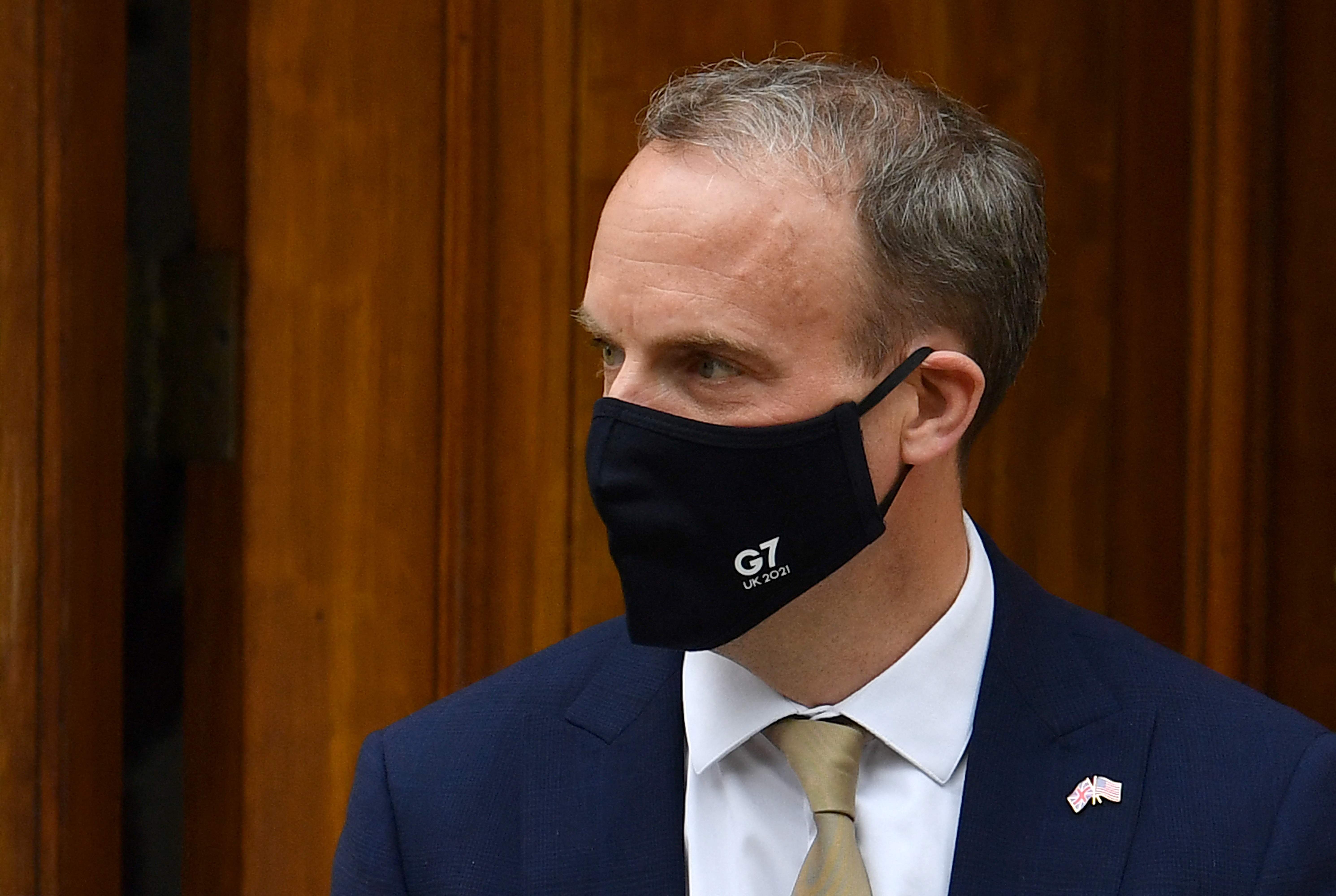Britain commits £22m to fighting cyber-attacks by hostile regimes
Elections a prime target of nations such as Russia looking to ‘sabotage and steal’, Dominic Raab says

Your support helps us to tell the story
From reproductive rights to climate change to Big Tech, The Independent is on the ground when the story is developing. Whether it's investigating the financials of Elon Musk's pro-Trump PAC or producing our latest documentary, 'The A Word', which shines a light on the American women fighting for reproductive rights, we know how important it is to parse out the facts from the messaging.
At such a critical moment in US history, we need reporters on the ground. Your donation allows us to keep sending journalists to speak to both sides of the story.
The Independent is trusted by Americans across the entire political spectrum. And unlike many other quality news outlets, we choose not to lock Americans out of our reporting and analysis with paywalls. We believe quality journalism should be available to everyone, paid for by those who can afford it.
Your support makes all the difference.Britain will invest £22m to help boost cyber security in the developing world, with a focus on the Indo-Pacific and Africa, and combat online attacks by hostile regimes and organised criminal gangs.
Announcing the funding at the annual CyberUK conference, foreign secretary Dominic Raab warned autocratic states and gangs were using technology to undermine democracy, and accused the Kremlin of orchestrating ransomware attacks by hacking groups.
He claimed Russia and other nations including North Korea, Iran, and China were using digital technology "to sabotage and steal, or to control and censor".
"There is also a democratic dimension to the threats that we see because elections are now a prime target,” he added.
Mr Raab held up the example last year’s general election in this country, the 2016 US election which took Donald Trump to the White House and also the election last year which he lost to Joe Biden as examples of attempted interference.
Part of the investment programme will involve the setting up of a new cyber operations hub, working across Ethiopia, Ghana, Kenya, Nigeria and Rwanda with Africa experiencing a growing Chinese presence.
Pointing to the National Cyber Security Centre dealing with 723 major cyber security incidents in the last 12 months, the highest figure since the agency was formed five years ago, Mr Raab said: “ Some of this activity is aimed at theft or extortion, but it all too often is simply focused on sabotage and disruption.
“ I think it's worth saying these actors are the industrial-scale vandals of the 21st century. These hostile state actors, the criminal gangs, they want to undermine the very foundations of our democracy.... When states like Russia have criminals operating from their territory they have a responsibility to prosecute, not shelter them.”
The foreign secretary added: “We want to see international law respected in cyberspace, just as we would anywhere else.
“We need to show how the rules apply to these changes in technology, the changes in threats, and the systematic attempts to render the internet a lawless space. Our challenge is to clarify how those rules apply, how they are enforced, and guard against authoritarian regimes bending the principles to meet their own malicious ends."
Join our commenting forum
Join thought-provoking conversations, follow other Independent readers and see their replies
Comments